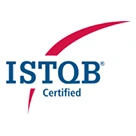

The clients are happy with the quality of the product that was delivered. Vervali Systems Pvt. Ltd. worked hard to complete everything within a short timeframe. Their team is flexible and friendly, making the engagement a positive experience.
Hiren Patel
VP Product
Vervali Systems Pvt. Ltd. has helped to make the solutions virtually bug-free while substantially improving the designs. We really appreciate their transparent and frank communications.
Neeraj Gutgutia
Founder
I was always impressed with their feedback and will to improve things for the better. The success of the business depends on the successful QA efforts the vendor has provided. The team members, including their leadership, are reliable and easy to collaborate with. Their professional communication style and efficient workflow are commendable.
Marija Agic
QA Manager
Internal stakeholders are pleased with Vervali Systems Pvt. Ltd's QA services. They maintained a smooth workflow throughout the timeline supported by their prompt bug reports. They ensured stakeholders were always well-informed about their progress.
Mitul Choksey
CEO
Nilesh has been our go to person for QA since we started our business. The quality of his work and the other resources we've been assigned through him have always been outstanding! If anyone ever needs to setup a QA team to fully test an application I recommend going with Nilesh and his company.















